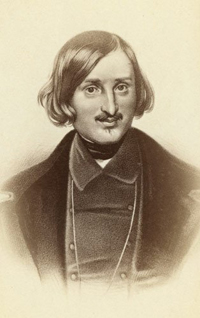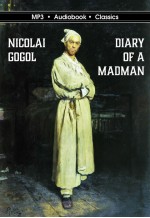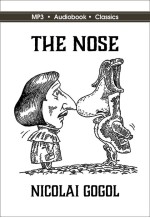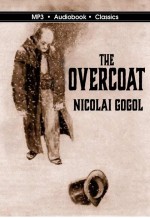Nicolai Gogol
| Nikolai Vassilievitch Gogol (March 31, 1809 - March 4, 1852) was a Russian author best known for his short stories, his play the Government Inspector, and his novels Dead Souls and Taras Bulba. During his lifetime he was considered a preeminent figure of the emerging natural school of Russian realism but has since come to be known for his gifts for satire, absurdity, surrealism, and the grotesque. Born in the government of Pultowa, in Ukraine, then Little Russia, he was educated in a public gymnasium and subsequently in the Lyceum newly established at Niejinsk. In 1831 he was appointed teacher of history at the Patriotic Institution, a position he then exchanged for the professorship of history in the University of St. Petersburg. He resigned at the end of a year when it was learned that he was unqualified. From 1835 he devoted himself entirely to literature. In 1836 Gogol left Russia and lived most of the time in Rome. In 1837 he wrote Dead Souls. In 1840 he went to Russia for a short period to superintend the publication of the first volume of ‘Dead Souls,’ and then returned to Italy. In 1846 he returned to Russia and fell into a state of fanatical mysticism. One of his last acts was to burn the manuscript of the concluding portion of ‘Dead Souls,’ which he considered harmful. His stories include 'The Nose', Overcoat', and the collections ‘Evenings on a Farm Near Dikanka,’ ‘Mirgorod,’ and Arabesques’. |
Diary of a Madman
Diary of a Madman (1835) is a farcical short story that ranks with “The Overcoat” and “The Nose” as..
$8.99
The Nose
In 1722 Peter the Great introduced a system of positions and ranks for the military, the government,..
$8.99
The Overcoat
"We all come out from Gogol's ‘The Overcoat’". This statement by Fyodor Dostoyevsky expresses the gr..
$8.99




